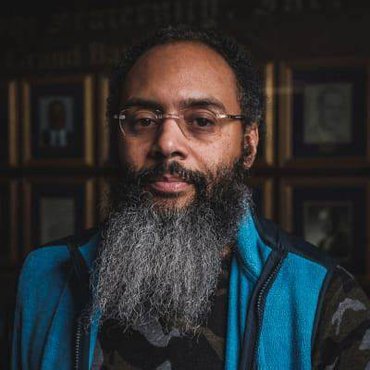The COVID-19 pandemic placed the spotlight on entrepreneurship once again as unprecedented national and local action was taken to help small businesses survive.
This spotlight drew attention to issues such as general entrepreneurship policy, as well as diversity and equity in entrepreneurship support systems. This increase in attention dovetailed with a growing national conversation around entrepreneurship ecosystem building. Entrepreneurship ecosystem building looks at how the system as a whole influences entrepreneurship for better or worse.
With an eye to post-pandemic entrepreneurship, the External LinkCleveland Fed Policy Summit hosted a panel featuring two experts on the subject of entrepreneurship ecosystem building. Victor Hwang is founder and CEO of External LinkRight to Start, a national entrepreneurship policy organization. Rodney Sampson is CEO of External LinkOpportunity HUB, an inclusive entrepreneurship ecosystem building organization.
The following quotes offer key takeaways from the panel discussion. To watch the panel in its entirety visit - External LinkPolicy Summit 2021: Pathways to Economic Resilience in Our Communities (clevelandfed.org)

Victor Hwang, CEO, Right to Start
Entrepreneurship policy is a 360-degree issue
“(Entrepreneurship policy should be) a 360-degree issue because everything affects entrepreneurs. If you think about it, what are the issues that affect entrepreneurs? It's taxes, it's regulation. It's also capital access. It's banking. It's workforce training, its economic development, it's K through 12 education. It’s patenting issues, and all the regulatory issues, all the contracting issues and all the human social issues that affect the communities in which entrepreneurs build their companies. We've got this problem where policy is actually a broad-based issue and many aspects of policy across all these silos affect the entrepreneur and hurt their chances of success. But we tend to think of it as a siloed, narrow issue. So the way to tackle entrepreneurship as a policy issue is to think of it as a lens by which we view all policymaking, as opposed to a program that needs to be built or a single thing that needs to be done to solve everything.” – Victor Hwang

Rodney Sampson, CEO, Opportunity Hub
Technology-based entrepreneurship and the challenge of economic equity
“Pre-pandemic, Black wealth was projected to be External Linkzero by 2082. Due to automation, Black Americans will lose 4.5 million jobs. When I speak of automation, I'm talking about artificial intelligence, machine learning, quantum computing, blockchain, augmented reality, virtual reality and advanced robotics. Those technologies are being leveraged by startup companies that are being funded by venture capital, just to help frame the problem. A report that we co-collaborated on about a month ago suggested that technology's racial equity gap is costing Black and Latinx workers $50 billion a year.
“And if you look at Black and Latinx workers, as it relates to our representation in the U.S. population, the report suggests that the technology ecosystem is missing 1.1 million workers. And we understand that the workers are the ones that are working inside of supply chains that identify problems, and many of them go on to become entrepreneurs and to start the startup company. So, the first thing we've got to deal with is the upskilling issue we have in this nation. From a policy perspective, we can't wait for four, eight, 12 years for someone to get a Ph.D., or someone to get a master's or someone to get a bachelor's degree. There are millions of people who can be upskilled through bootcamps and rapid re-skilling programs for existing jobs.” – Rodney Sampson
A 5% solution could boost entrepreneurship
“We talk about 5% to start. It's a simple concept. It's modeled off what cities do with 1% for the arts. A lot of cities will dedicate 1% of their city budgets for fostering public arts. Well, let's just take 5% of what we currently allocate for supporting big corporations in several key government areas and just shift 5% of it toward the entrepreneurs, the people that are starting and growing young businesses. That could include, for instance, government contracts. Can we just shift 5% of government contracts to make sure that the young new businesses that are growing have a shot at those?
“Can we shift just 5% of economic development funding toward the entrepreneurs? That's about $20 billion or more a year across the U.S., almost all of which is dedicated toward attracting and retaining and subsidizing and incentivizing large corporations because large corporations do ribbon cuttings for mayors. They show up in the news when they hire lots of people or when they fire people. The little startup companies, when they're hiring and firing, you don't notice it because it's so small and they don't do a lot of ribbon cuttings because it's not a big deal when they do it. But in the aggregate, it's the homegrown businesses, the organic companies that people build from the ground up and their communities and their neighborhoods that create more jobs than the big companies that you do ribbon cuttings for.” – Victor Hwang
Inclusion, entrepreneurship and equity by the numbers
“Let’s talk to mayors right now and let's get External LinkRight to Start in front of every mayor and have them allocating resources out of American Rescue Plan. Let's have governors allocate equity capital. I'm going to sum this up. To get 1.1 million more Black and Latinx Americans into the workforce rapidly we need to re-skill each one at about $20,000. There's $22 billion. That's the number. Also, we see over $150 billion in 2020 going to startups. A 30% representation (of diverse startup founders) is $50 billion. I know that the founders are there, the entrepreneurs are there. There's not a pipeline issue. Just because you see one Black or brown founder in an accelerator does not mean that's what the landscape looks like. So, when we start looking at how to add up what is actually required to move the needle towards equity, I want you to think about the scale of what it will take to take one person out of poverty. If one diverse entrepreneur raises their seed rounds (of startup capital), that should take about 10 people out of poverty. We can get there, but we have to count the numbers.” – Rodney Sampson
